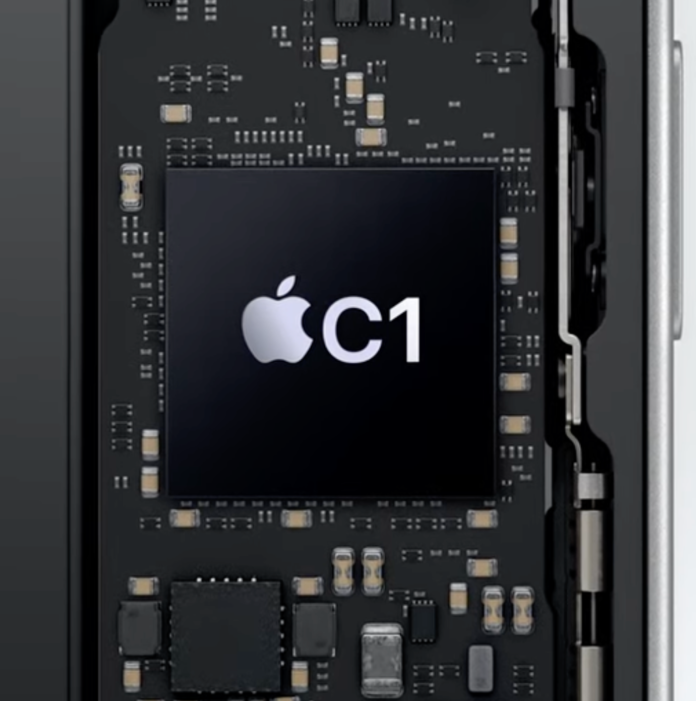Apple on Wednesday introduced its first custom-designed modem chip, aiming to reduce its reliance on Qualcomm for iPhone connectivity to wireless data networks.
The chip debuts in the $599 iPhone 16e, which Apple unveiled alongside plans to integrate the technology across its product lineup in the coming years.
The modem is part of Apple’s new C1 subsystem, which combines key components such as processors and memory. Apple executives said the C1 system improves battery life in the iPhone 16e, which runs on the same A18 processor as the rest of the iPhone 16 lineup.
The new phone will also feature Apple’s latest artificial intelligence capabilities.
Modem chips are highly complex, requiring compatibility with hundreds of carriers across multiple countries. Apple previously relied on Qualcomm, the world’s largest modem supplier, after an unsuccessful effort to source alternatives from Intel.
Following a legal dispute, Apple settled with Qualcomm in 2019 and signed new supply agreements. However, the company now says it has developed an advanced modem platform for long-term use in its devices.
Apple’s C1 subsystem features a baseband modem built using advanced 4-nanometer chip technology and a transceiver made with 7-nanometer technology.
The modem underwent testing with 180 carriers in 55 countries to ensure global compatibility, said Johny Srouji, Apple’s senior vice president of hardware technologies. He described the C1 as “the start” of a platform Apple will refine over multiple generations.
One key advantage of the C1 is its integration with Apple’s processor chips. The system prioritizes data traffic in congested networks, making the iPhone more responsive.
It also includes custom GPS and satellite connectivity but lacks millimeter-wave 5G support, an area where Qualcomm remains a leader.
Apple has not disclosed when its modems will support millimeter-wave technology or when Qualcomm’s chips will be phased out. Qualcomm has projected that its share of Apple modems will drop from 100% to as low as 20% by next year, though it maintains a technology licensing deal with Apple until at least 2027.
Following Apple’s announcement, Qualcomm shares rose about 1%, while Apple shares remained largely unchanged. Srouji emphasized that Apple’s goal is not to compete with Qualcomm and MediaTek but to develop differentiated technology tailored to Apple’s ecosystem.
























